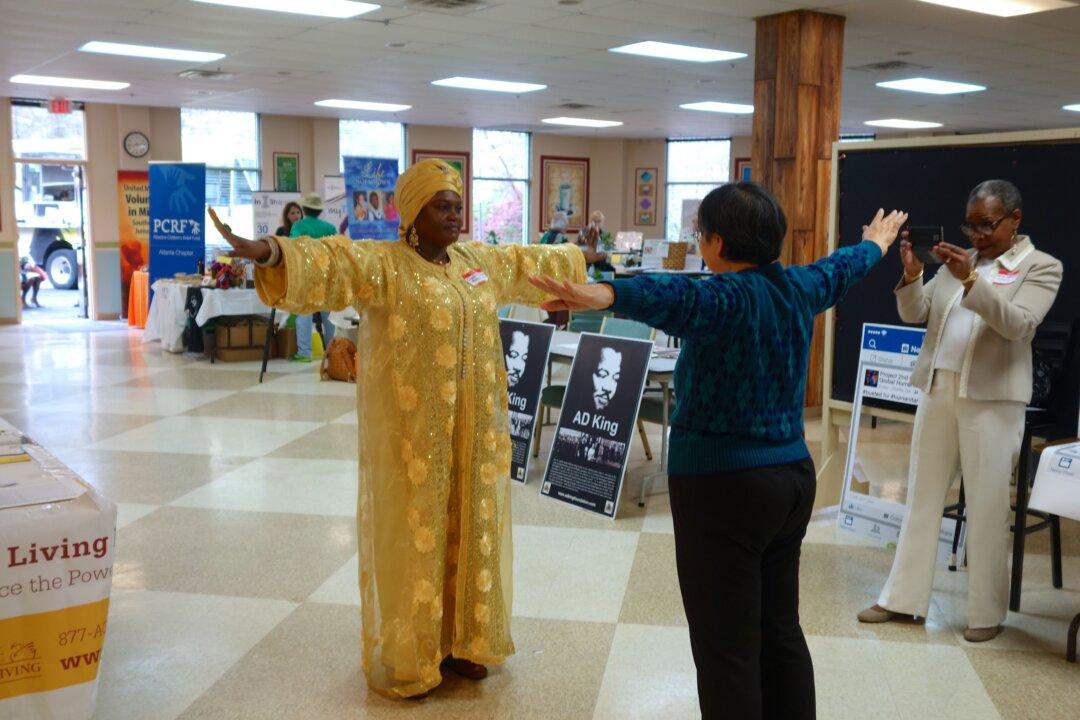JACKSONVILLE, Fla.—Prosecutors may seek a retrial for Michael Dunn, a 47-year-old software developer who was convicted of multiple counts of attempted murder Saturday.
Jurors deadlocked on the charge of first degree murder. State Attorney Angela Corey said that her office, the same that prosecuted the George Zimmerman case, will consider whether to retry Dunn.
The facts of the case echoed Zimmerman’s killing of the unarmed Trayvon Martin in 2012. Dunn testified that he felt threatened and that he fired to save his own and his fiancée’s life. He did not try to avoid the threat. He did have a permit to carry a weapon.
Dunn was charged with fatally shooting 17-year-old Jordan Davis of Marietta, Ga., in 2012.
The shooting took place after an argument over loud music coming from the SUV occupied by Davis and three friends outside a Jacksonville convenience store. Dunn, who is white, had described the music to his fiancée as “thug music.” He claimed that he acted in self-defense. No weapon was found in or near the SUV.
Stand Your Ground
Protesters chanted outside the courtroom before the verdict. The case raised questions about Florida’s stand-your-ground law. Florida was the pioneer in passing such a law in 2005. It means “generally allowing people to stand their ground instead of retreating if they reasonably believe doing so will prevent death or great bodily harm,” according to FindLaw website.
Since 2005, 15 other states have passed stand-your-ground laws. Before 2005, states imposed a duty to retreat when outside one’s own home, if possible, instead of using deadly force, and 19 states still do.
Ten states have self-defense laws similar to stand-your-ground laws, but with an important difference. A person can stand his ground only on his own property, not in a public place, as in the Martin and Davis shootings.
“Dunn’s attorney argued self-defense, which has been around forever,” said Miami defense lawyer and former assistant U.S. Attorney David Weinstein. “I think people will say that because some of the language from the stand-your-ground statute gets embedded into the jury instructions, that stand your ground has an effect.”
One argument against stand-your-ground laws is about racial profiling, about white people assuming that black people pose a deadly threat.
Unnecessary Loss
“Stand Your Ground laws create an environment that places far too many people, especially young African-American men, at risk of losing their lives as a result of nothing more than the perception that someone ‘feels’ threatened,” said Adora Obi Nweze, president of the Florida State National Association for the Advancement of Colored People (NAACP), in a statement. “The only possible result of assigning life and death decision-making authority to anyone with a gun is the unnecessary loss of innocent lives.”
It has been reported that his jury did not find Zimmerman guilty of murder or manslaughter because of Florida’s law. The jury in Dunn’s case struggled with the charges against him, despite conflicting testimony and the victims having no weapons.
After more than 30 hours of deliberations over 4 days, the 12 jurors found Dunn guilty of 3 counts of attempted second degree murder and 1 count of firing into an occupied car.
Earlier in the day, the panel said in a note to Judge Russell L. Healey that they could not agree on the murder charge. They also had the option of convicting him of second degree murder or manslaughter. The judge asked them to continue their work, and they went back to the deliberation room for two more hours before returning with a verdict.
Embraced Civic Duty
“I’ve never seen a case where deliberations have gone on for this length of time,” Healey said afterward, praising the jurors. “They’ve embraced their civic duty, and they are to be commended for that.”
Dunn showed no emotion as the verdicts were read. Each attempted second degree murder charge carries a maximum sentence of 30 years in prison, while the fourth charge he was convicted on carries a maximum of 15. A sentencing date will be set later.
Davis’s parents left the courtroom in tears. Afterward, his mother, Lucia McBath, expressed gratitude for the verdict. Sunday would have been the teen’s 19th birthday.
“We are so grateful for the truth,” McBath said. “We are so grateful that the jurors were able to understand the common sense of it all.”
“I’m happy that Michael Dunn will now be off the streets, but my heart is heavy for that fact that he was not held accountable for the young life he stole,” stated NAACP Region 5 Director Kevin Myles. “That said, I applaud the prosecutors’ decision to retry the 1st degree murder charge and look forward to justice being served.”
The Associated Press contributed to this report.




